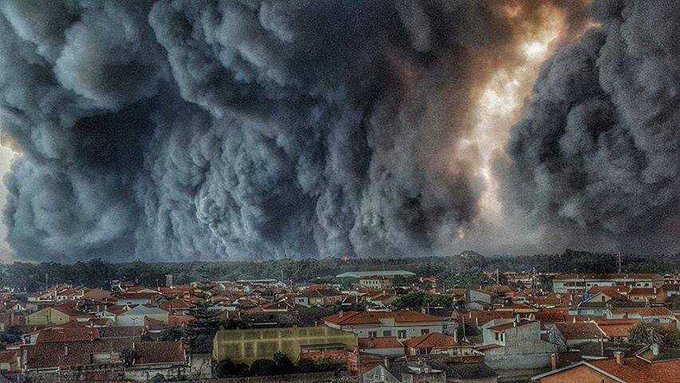A group of six young people from Portugal have started an action against 33 governments in the European Court of Human Rights (ECHR) in Strasbourg over the climate crisis.
The six, aged between eight and 21 years, allege the lack of action on the part of governments is a breach of their fundamental right to life. The court case targets the 27 members of the EU (including Belgium and Portugal) as well as the UK, Switzerland, Norway, Russia, Turkey and Ukraine.
The case, if accepted by the court, would be the first climate case in front of the ECHR, and potentially pave the way for many more.
The complaint centres on a serious of forest fires in Portugal in 2017 in which 120 people lost their lives. Scientists have linked the fires to climate change . This year, Portugal underwent the warmest month of July in the last 90 years.
“I fear for my future," said Catarina Mota, aged 20 and one of the initiators, during a virtual press conference last week.
“I live with the feeling that my home is becoming a more hostile place every year”.
She lives in Leiria, in the centre of Portugal. The heat there, she said, is so great that outdoor exercise during the day has become unbearable.
“If I have children, what kind of world shall I bring them up in? These are real concerns that I have every day. After the 2017 fires we realised that we must urgently stop climate change.”
The young people’s action is supported by the Global Legal Action Network (GLAN), which works to provide legal advice to those who could not otherwise afford it. Gerry Liston, a legal officer at GLAN, told the website Climate Home News the case could “exert a significant level of pressure on governments in Europe to adopt the emissions reductions that science demands”.
Even if the ECHR does not have the power to order governments to meet their commitments under the Paris climate accords, the lead counsel in the case said a ruling of any sort could encourage citizens to take legal action through domestic courts.
Lawyers will argue that the barrier to the court accepting a case – that all domestic remedies have been exhausted – could be set aside if the court accepts that such legal procedures in 33 different countries would be prohibitive to justice.
“I think the court will look really bad if it throws the case at the admissibility level,” said Annalisa Savaresi, Europe director of the Global Network on Human Rights and the Environment.
Alan Hope
The Brussels Times

